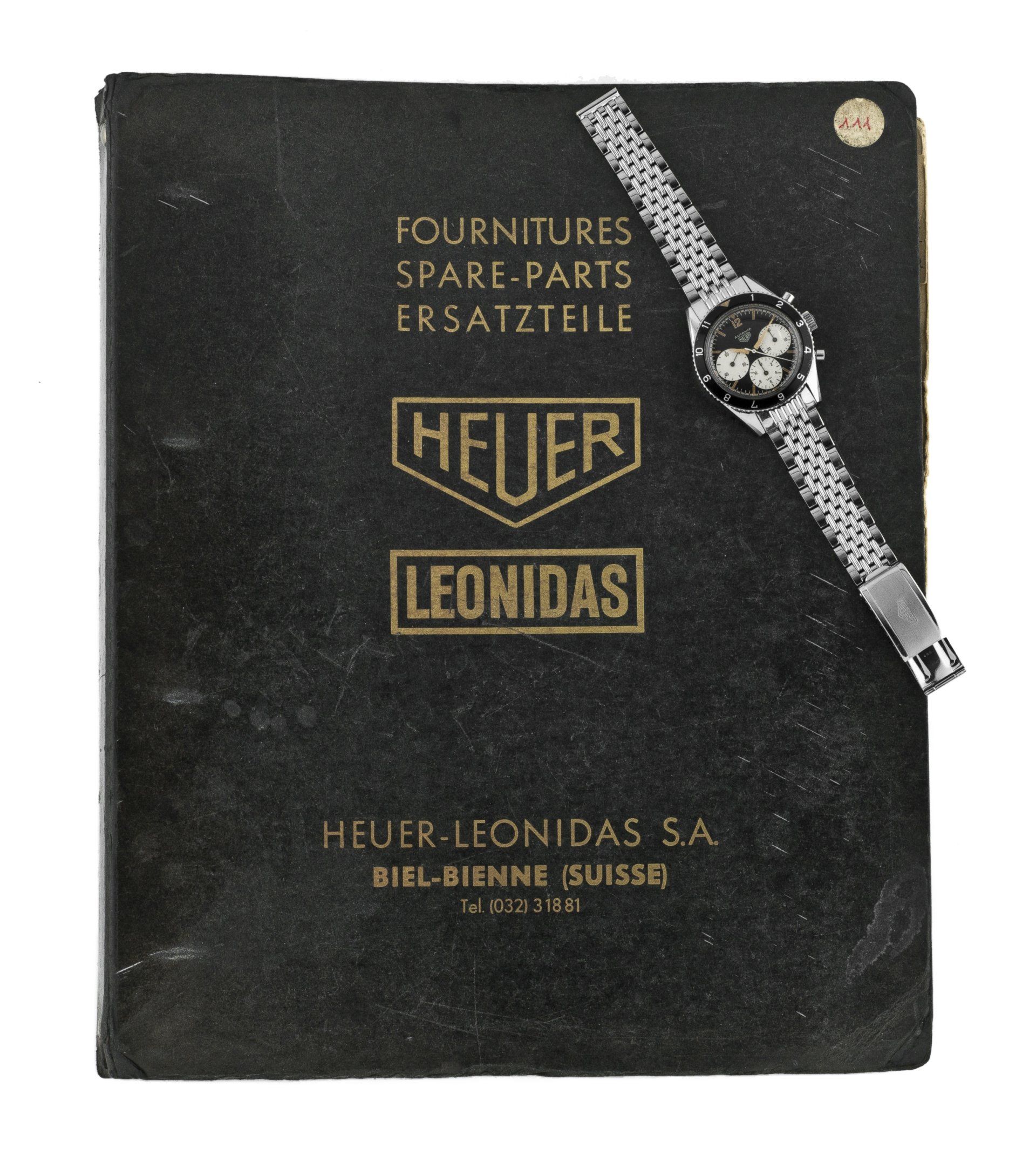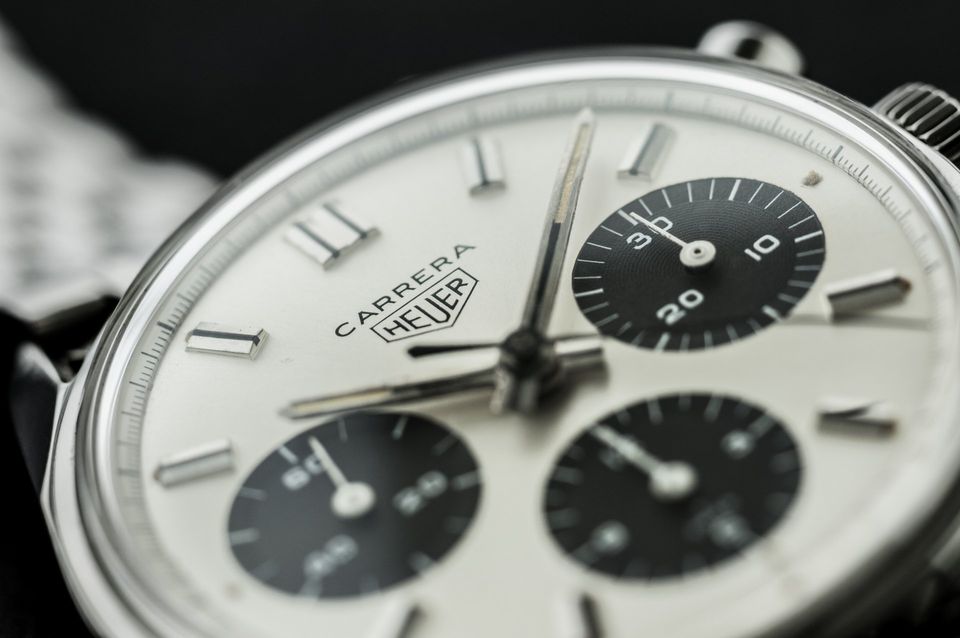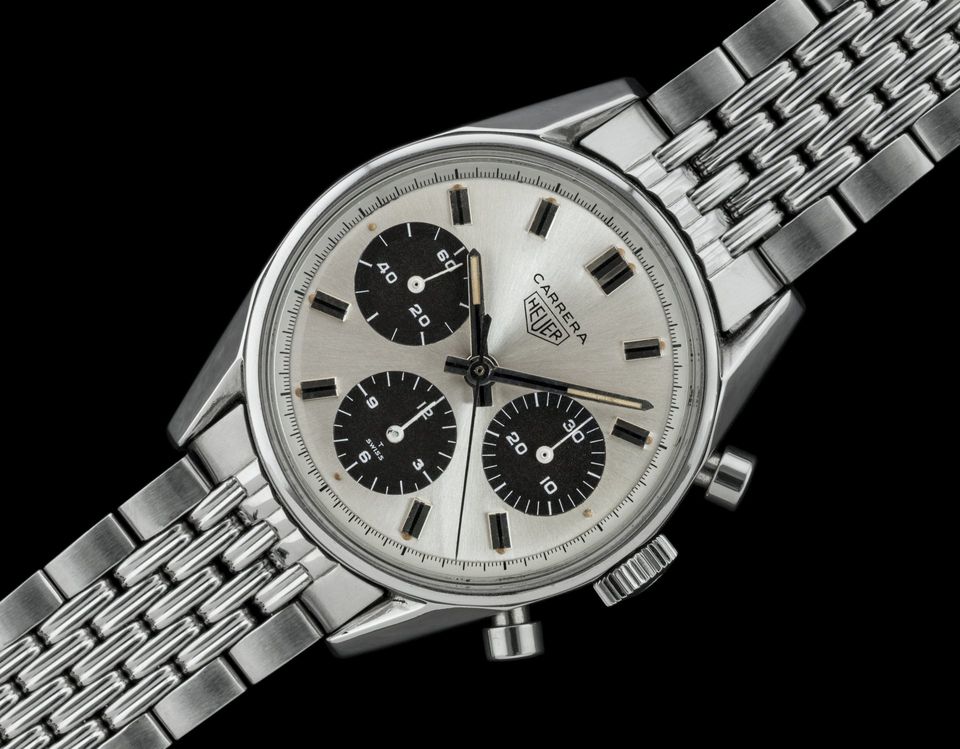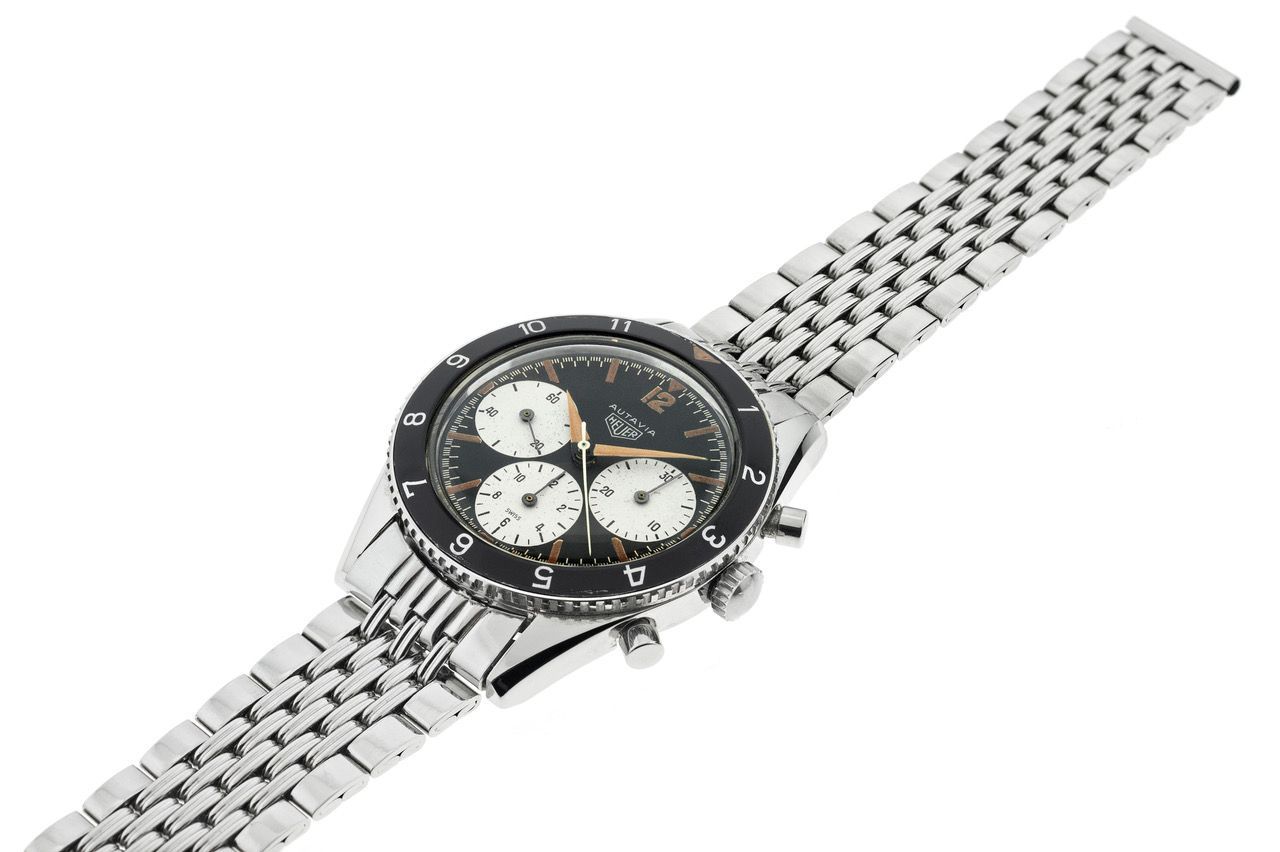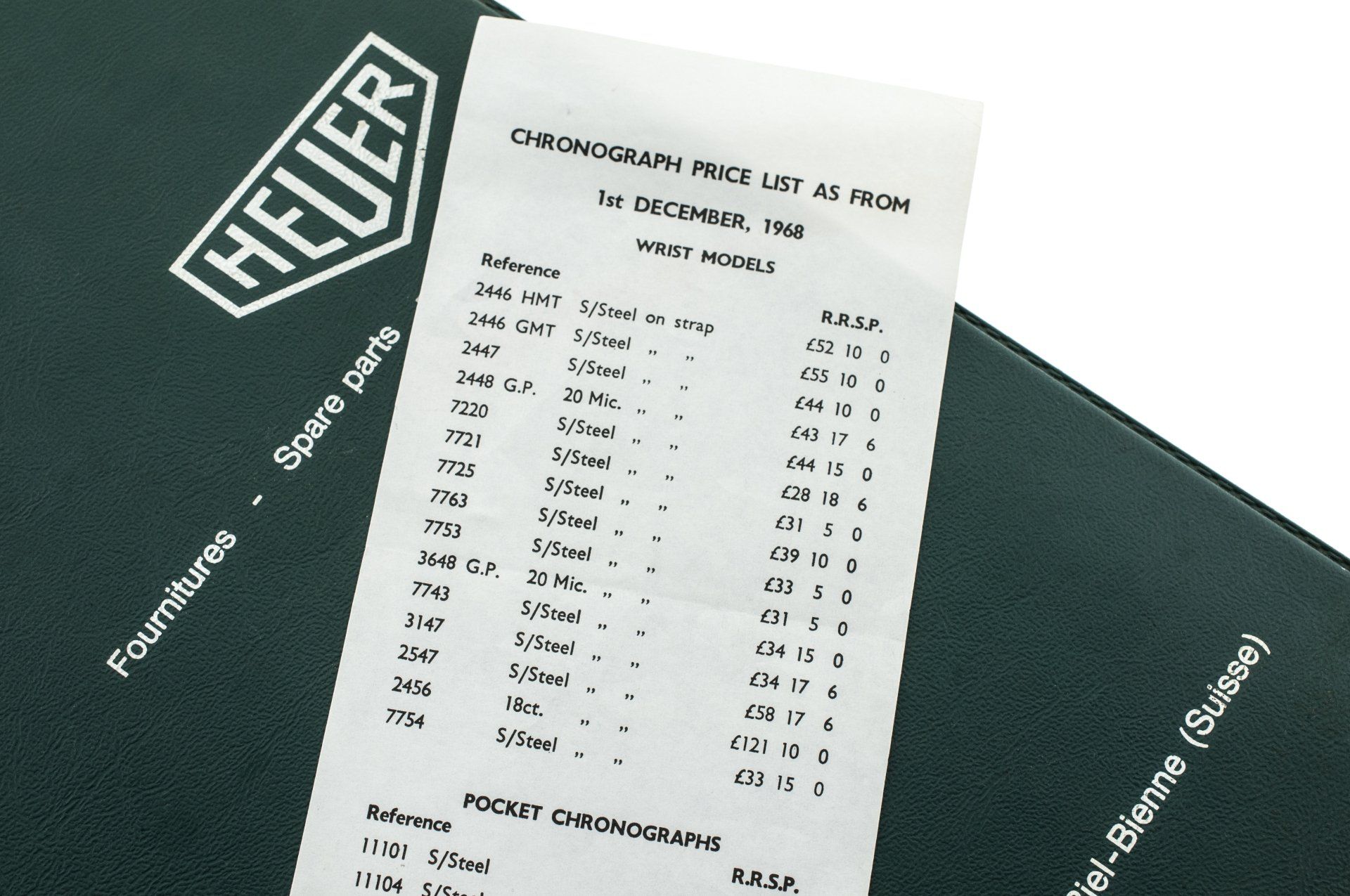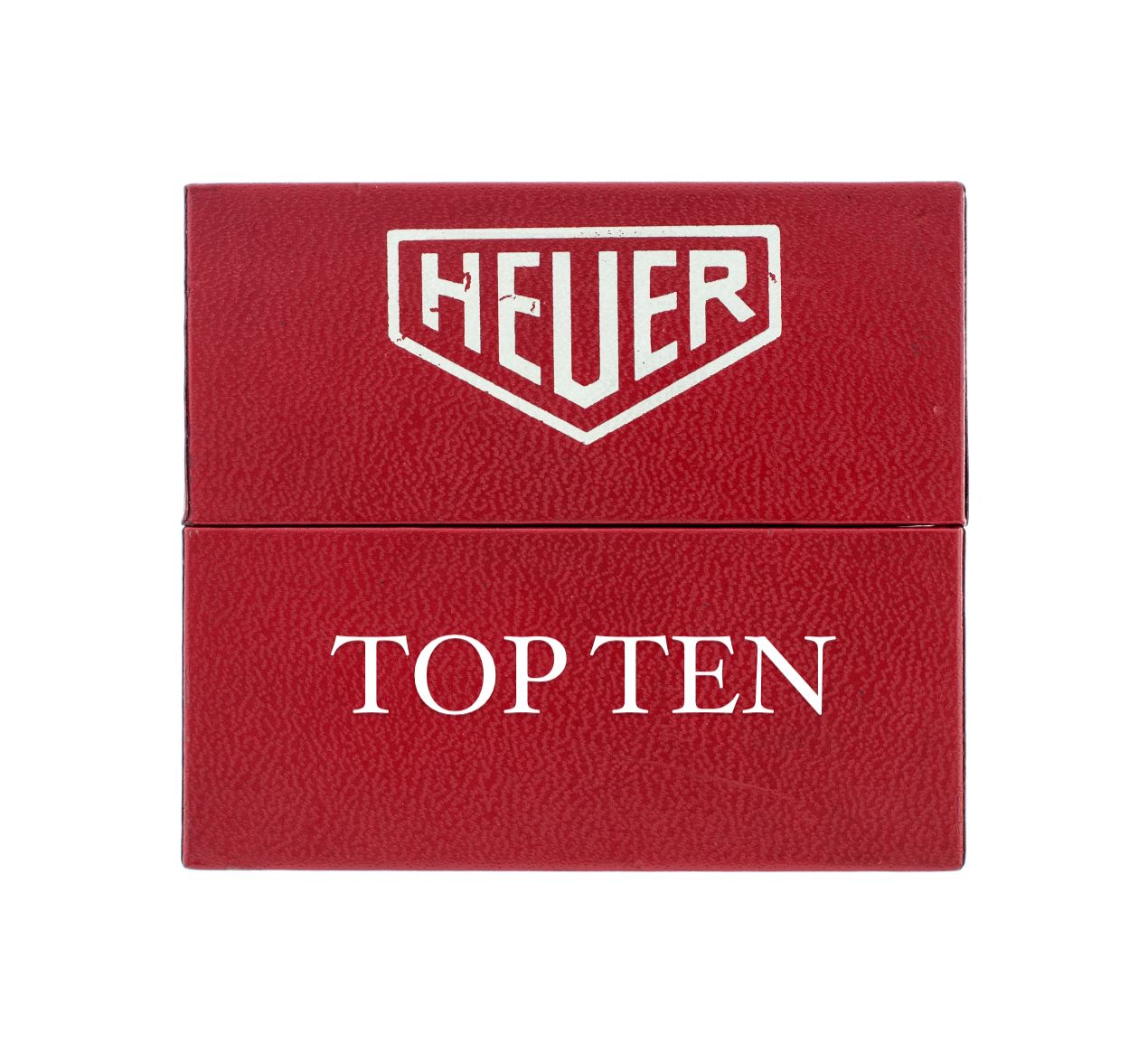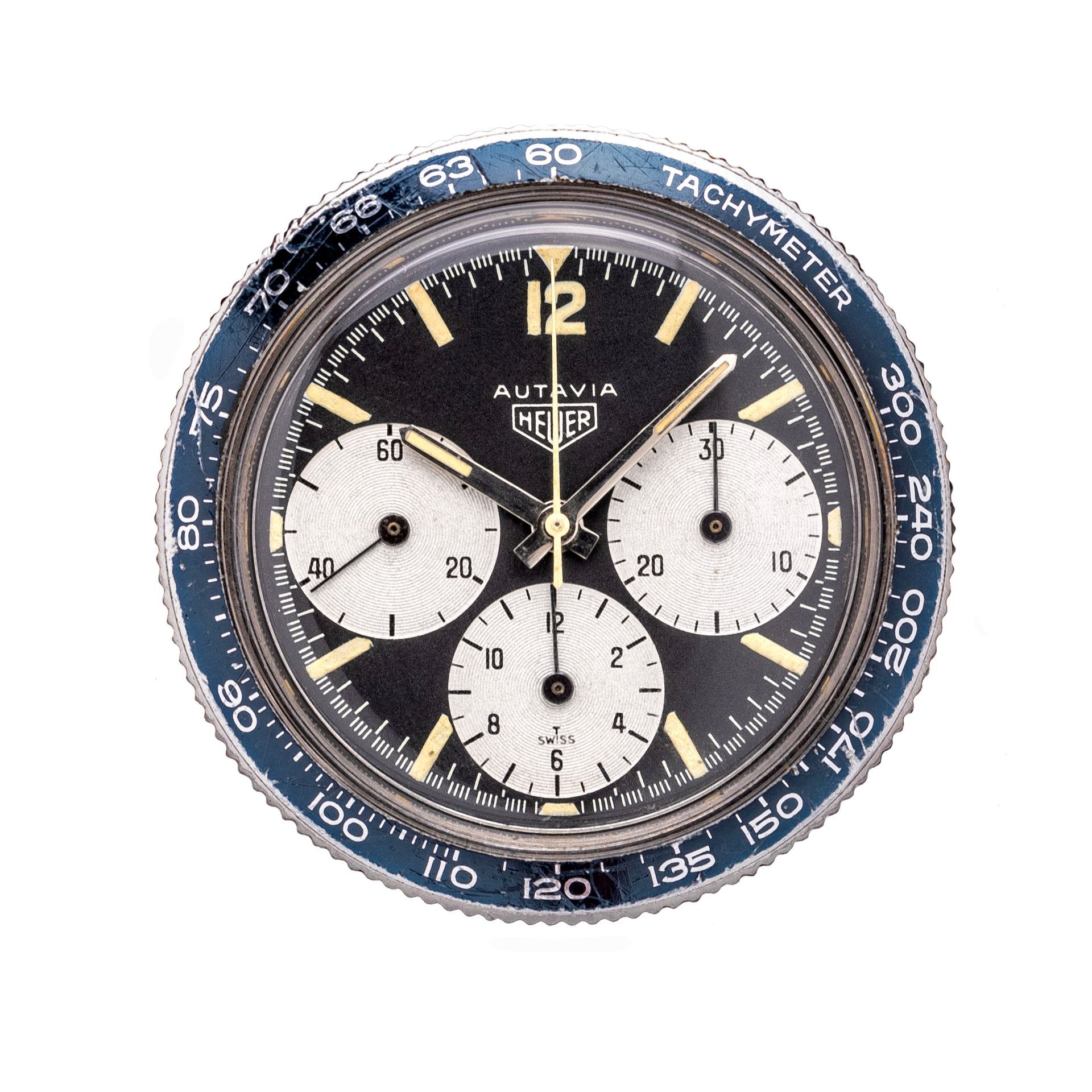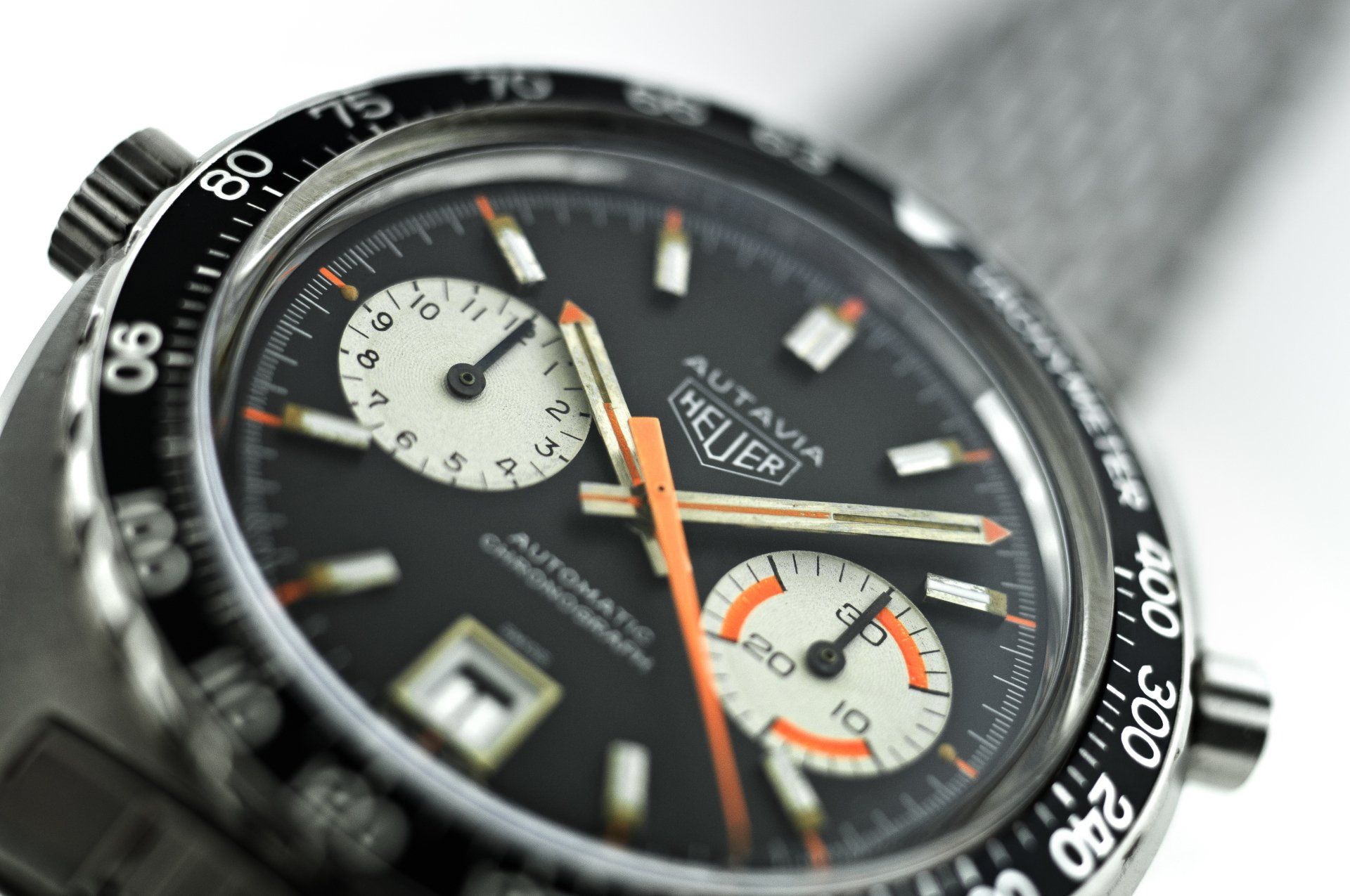The Carrera 2447SN "Panda"
Small perhaps but perfectly formed, the 2447SN is possibly one of the best looking chronographs ever made.
The 2nd execution Carreras of the 1960s were introduced in the latter half of 1968 - some five years after the Carrera was launched - and it was the first time we saw contrasting silver dials being sold on a named Heuer chronograph. Just before this, in early 1968, a batch of test silver and black "Panda" SN dials for the Autavia 2446c and 7763c had been produced but these never made it into production. The story of those Autavia dials was told to me by a Heuer watchmaker from Switzerland who was on sabbatical for Heuer in New York during 1968. He spotted these Autavia Panda dials and was intrigued enough to be allowed to take one back to Switzerland. He had never seen such a silver and black dial at Heuer Switzerland and so he converted the 2446cSN Autavia dial into his favourite Carrera 2447 case via some nifty work on his lathe. In reality, by the end of the year his effort had been wasted as Heuer had introduced the SN dial into the Carrera range!
Buy The Heuer Carrera Book
Back to the Carrera and the introduction of the 2nd execution Carrera 2447 saw some of the finer details of the 1st execution change. Shorter, thicker painted hour markers on the dial along with matching black stripe hands for example, instead of thin markers and plain hands of the 1st execution, all in the aid of legibility. However, the biggest change was the introduction of several contrasting dials. There were five in total: the 2447SN, SNT, SND and the 2447 NS, and NST. Although the 2447SN is not the rarest, it is considered the best looking and it could be described as the most desired of the range. It is sometimes referred to as "Big Eyes" because the 2447SN and NS have slightly larger sub registers than their tachymeter and decimal scale cousins, and, without the scales on the dial edge, there was more room available.
Production numbers on individual references within the 1960s Carrera range are notoriously difficult to gauge with accuracy. When you crunch the serial ranges, the numbers of dial variations and the overall rarity/numbers known, I would estimate that fewer than 400 of the 2447SN were produced, whilst there would appear to be even fewer 2447SNT and SND made if the numbers known are factored in. The Carrera 2447NST appears to have been the biggest seller of the contrasting dials. To date I have only noted fewer than 40 Carrera 2447SN, so it is yet another rare Heuer and values tend to range between less than £10000 for a "not so good one" to perhaps £25000+ for the very best.
Things to look out for on the 1960s Carrera are serial numbers that match the execution and have not been re-engraved (I have noted modern re-machined cases in the wild), and dials that have the correct length hour and minute hands (scale dials have shorter hands that finish before the timing scale). Also note that Heuer used some service hands on Carrera, and these can be identified by having black stripes that run to the tip of the hand, as opposed to the original hands that have black stripes up to the lume area (but not after). Finally, check the movements have not been fiddled with. The Valjoux 72 movements subtly changed during their lifecycle in the Carrera so bridges, two letter base plate codes, and Swiss signings can all reveal different eras within that run. As always on rare and desirable vintage watches it pays to do your research - or ask someone who knows - as getting it wrong can prove costly.
On that note, click the link to preview and read about the detailed collector reference book, Heuer Carrera Chronographs 1962-85 it might just end up "saving you a bob or two" ;)
Note: Please do not reproduce these images without permission first.
